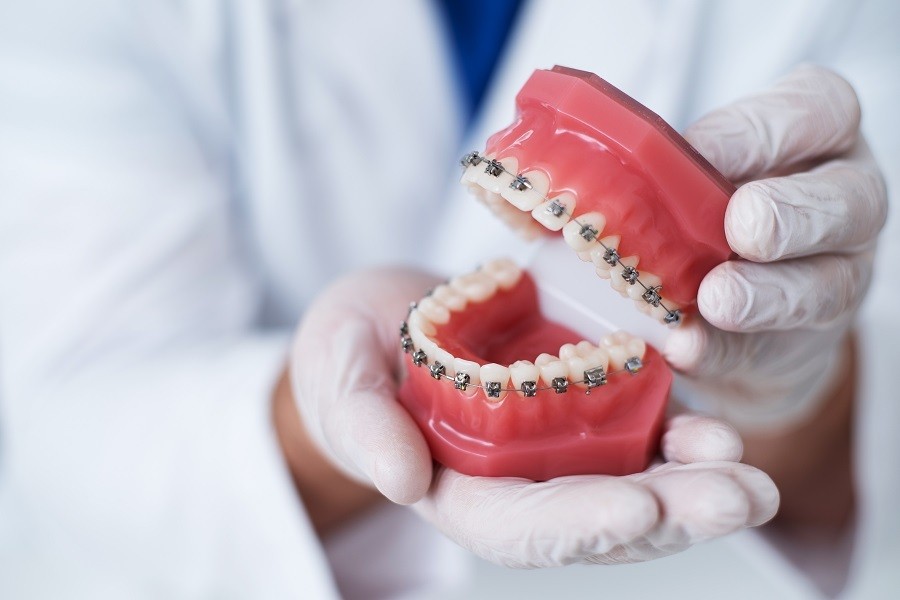
Orthodontics
Orthodontics is a medical procedure aimed at correcting dental and jaw issues by using specialized devices that help rearrange teeth and improve their alignment. The use of orthodontics is not limited to aesthetic purposes; it also extends to improving the function of the mouth and jaws, helping to address problems such as irregular bites, crowded teeth, and large gaps between teeth.
Types of Orthodontic Braces:
-
Traditional Metal Braces: These are the most common and widespread type of braces. They rely on metal brackets attached to the teeth, connected by thin metal wires that apply consistent force to move the teeth into the desired position.
-
Clear Braces: This type of brace is used to avoid the noticeable appearance of metal brackets. Made from transparent materials, these braces are less visible. Clear braces, such as "Invisalign," are custom-designed for each case using computer technology.
-
Ceramic Braces: Made from ceramic materials that are similar in color to natural teeth, these braces are less noticeable than traditional metal braces. They are often used by patients who are concerned about their appearance during treatment.
-
Lingual Braces: These braces are placed on the inner surface of the teeth, making them invisible from the outside. They are an ideal option for individuals who wish to completely conceal the presence of braces.
Benefits of Orthodontic Braces:
- Improved Aesthetic Appearance: Braces help enhance a person's smile by aligning the teeth in a coordinated manner.
- Improved Oral Function: They contribute to better biting and chewing, as well as facilitate cleaning and help prevent gum issues.
- Enhanced Psychological Well-being: Many people experience an increase in self-confidence after improving the appearance of their teeth.
Potential Risks and Complications:
- Pain and Discomfort: Patients may experience some pain initially due to the pressure exerted by the braces on the teeth.
- Possible Ulcers: The friction between the braces and the mouth can lead to temporary ulcers.
- Difficulty in Cleaning: Braces make it challenging to clean teeth effectively, which can lead to plaque buildup and increased risk of cavities if proper oral hygiene is not maintained.
If you are considering getting orthodontic braces, it is essential to consult a specialized dentist to determine the most suitable option for you based on your condition and personal requirements.

